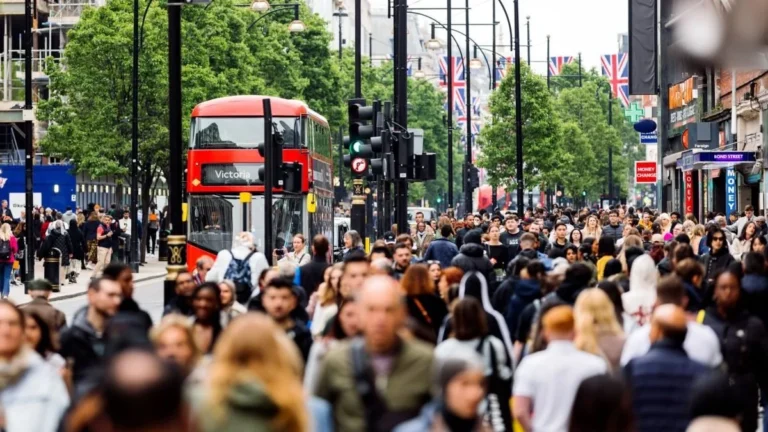A recent survey has revealed that many Britons feel increasingly detached from society and distrustful of strangers. Researchers say these trends signal broader issues related to social cohesion, mental health, and community engagement.
The survey, conducted across the UK, found that a significant portion of respondents reported feeling isolated, disconnected, or wary of interacting with people outside their immediate circles. Concerns about crime, social change, and public safety were cited as key reasons for this growing distrust.
Experts note that societal detachment is not just a matter of personal feelings but can have wider consequences. Communities with lower levels of trust and engagement often experience weaker social bonds, reduced cooperation, and increased stress among residents.
The findings indicate that younger and older demographics report differing experiences. Young adults frequently mention feelings of disconnection due to social media pressures and lifestyle changes, while older individuals cite concerns about crime or unfamiliar social environments. Both groups, however, share a sense of diminished trust in strangers.
Social psychologists suggest that these trends are influenced by multiple factors, including economic pressures, changing neighborhood dynamics, and the impact of digital communication on face-to-face interaction. While technology connects people virtually, it can also contribute to feelings of isolation in the real world.
The research also highlights that Britons’ perceptions of safety and social reliability vary by region. Urban residents often report higher levels of caution when interacting with strangers compared to those living in rural areas, where community ties tend to be stronger. Economic inequality and rapid demographic changes in cities may contribute to this divergence.
Survey respondents indicated that the sense of detachment affects daily life, including reduced participation in community activities, reluctance to trust neighbors, and limited engagement in civic initiatives. Experts warn that prolonged social detachment can impact mental health, increasing risks of anxiety, depression, and stress-related conditions.
Government and community organizations are being urged to address these trends by fostering stronger social connections, encouraging participation in local initiatives, and promoting trust-building measures. Programs such as neighborhood engagement projects, volunteer schemes, and local support networks are seen as vital steps toward rebuilding trust.
Mental health professionals emphasize the importance of maintaining social bonds and feeling connected to society. Strategies such as community events, accessible public spaces, and support groups can help individuals overcome feelings of isolation and rebuild confidence in social interactions.
The findings also raise questions about the role of media in shaping public perceptions. Sensationalized reporting on crime or social unrest can amplify fears and reinforce distrust. Experts encourage balanced reporting that emphasizes positive stories of community cooperation and social solidarity.
Economic factors are another influence on social detachment. People facing financial pressures, housing insecurity, or unstable employment are more likely to withdraw from community activities and limit interactions with others, contributing to the broader sense of isolation.
Educational institutions can also play a role in mitigating societal detachment. Schools, colleges, and universities can foster social responsibility, empathy, and interpersonal skills through programs that encourage collaboration, community engagement, and civic participation.
The survey serves as a reminder that societal cohesion is fragile and requires active effort to maintain. Trust in strangers and confidence in the broader community are essential components of a healthy society. Experts suggest that public awareness campaigns, local initiatives, and supportive policies can help restore confidence.
For Britons, the challenge is balancing caution with openness, fostering connections while remaining aware of personal safety. Addressing social detachment will require coordinated efforts from governments, community leaders, and individuals alike.
The study highlights a growing concern: that social detachment and distrust of strangers could have long-term implications for society. Strengthening trust, community ties, and social engagement is critical to ensure a resilient and connected population.


